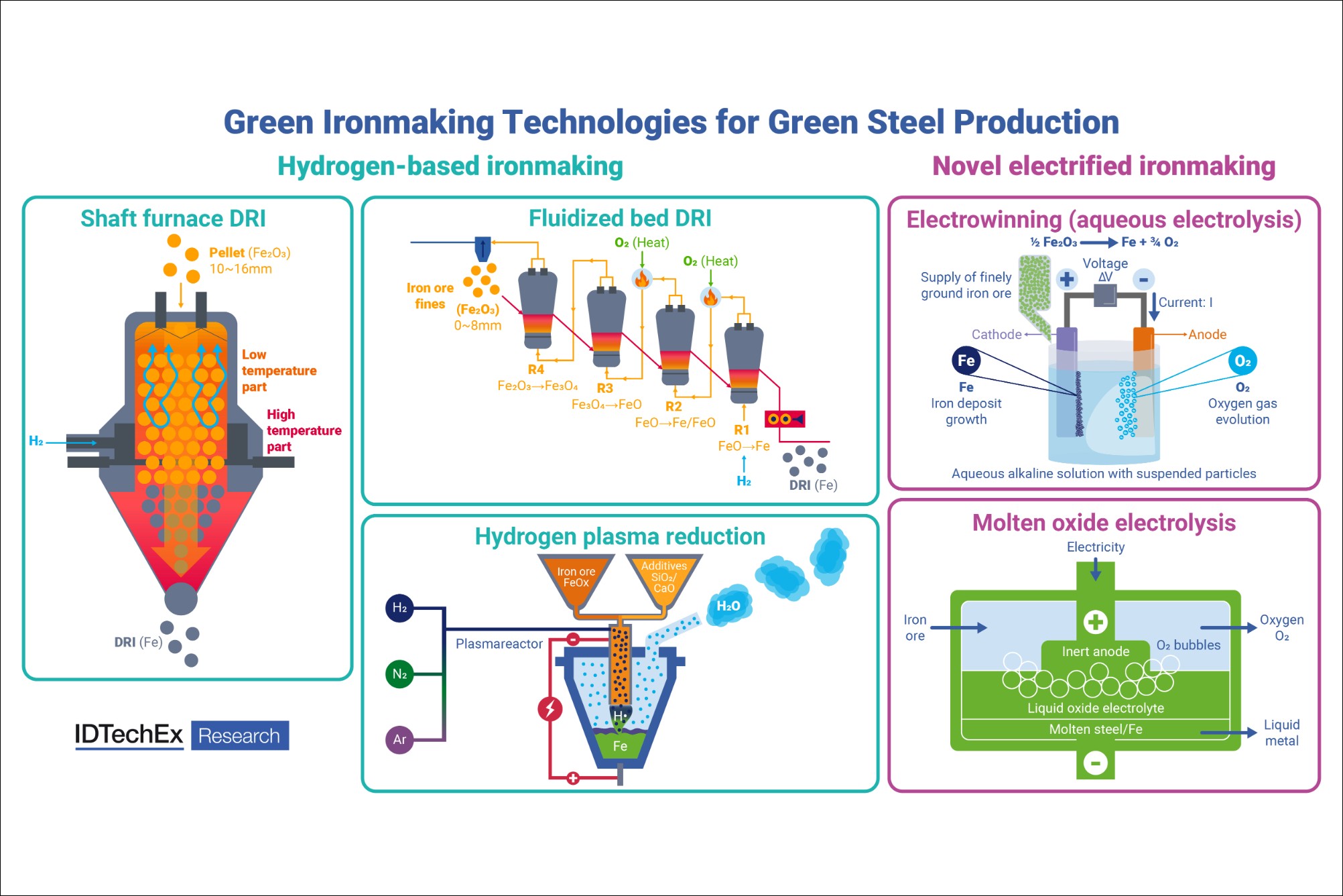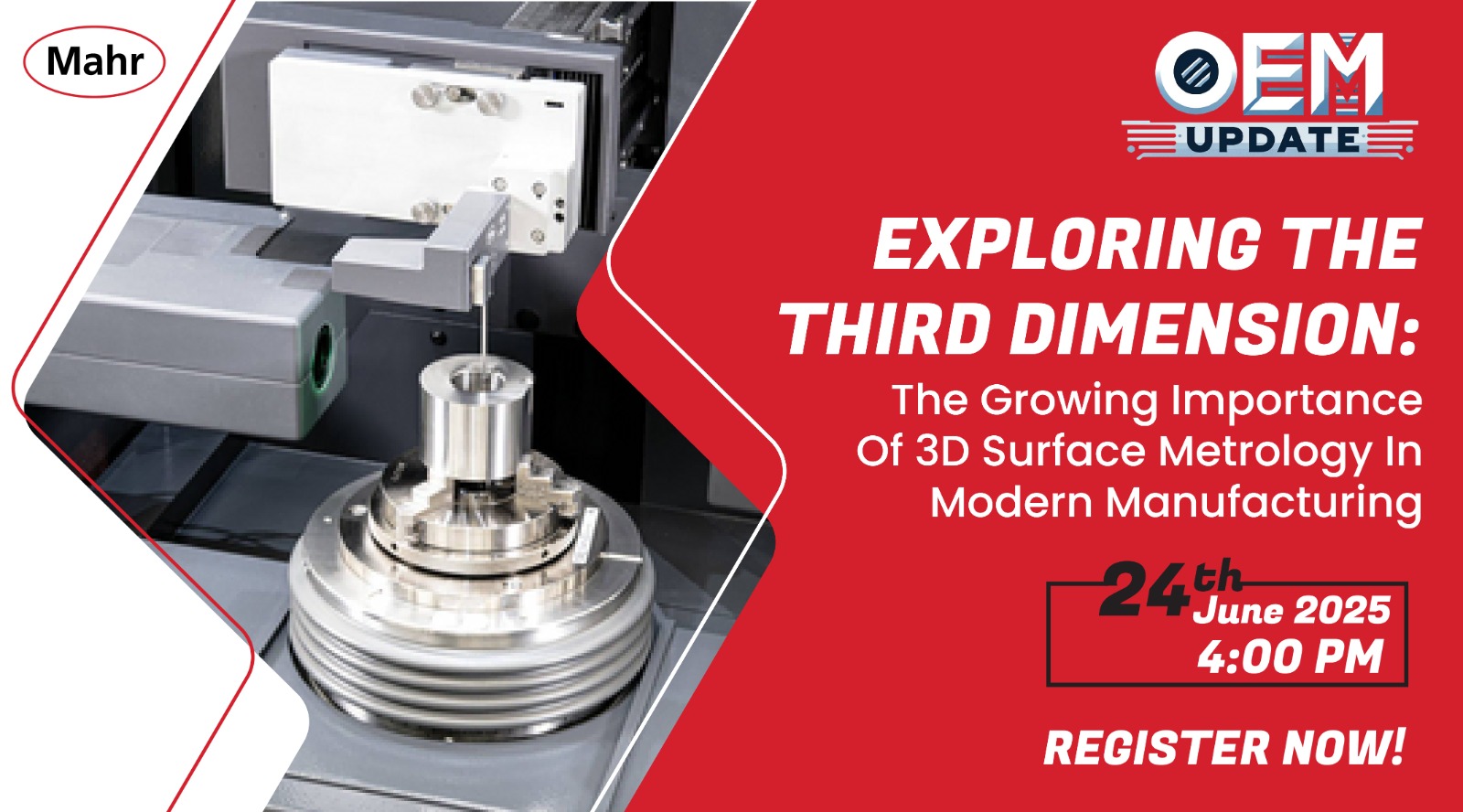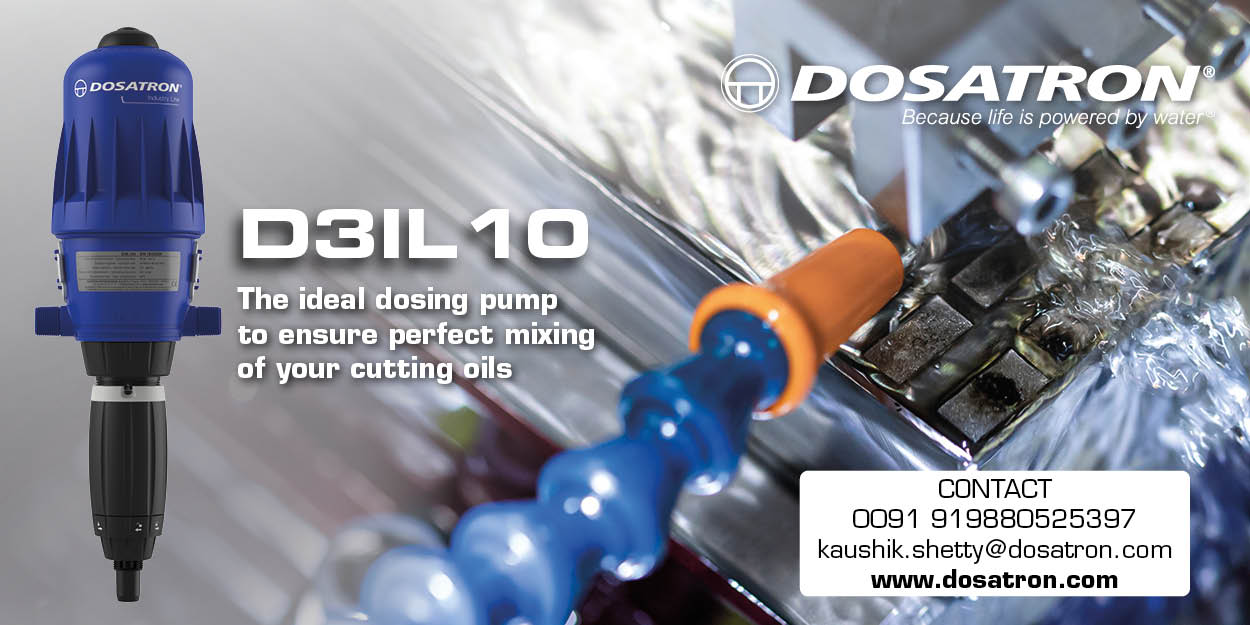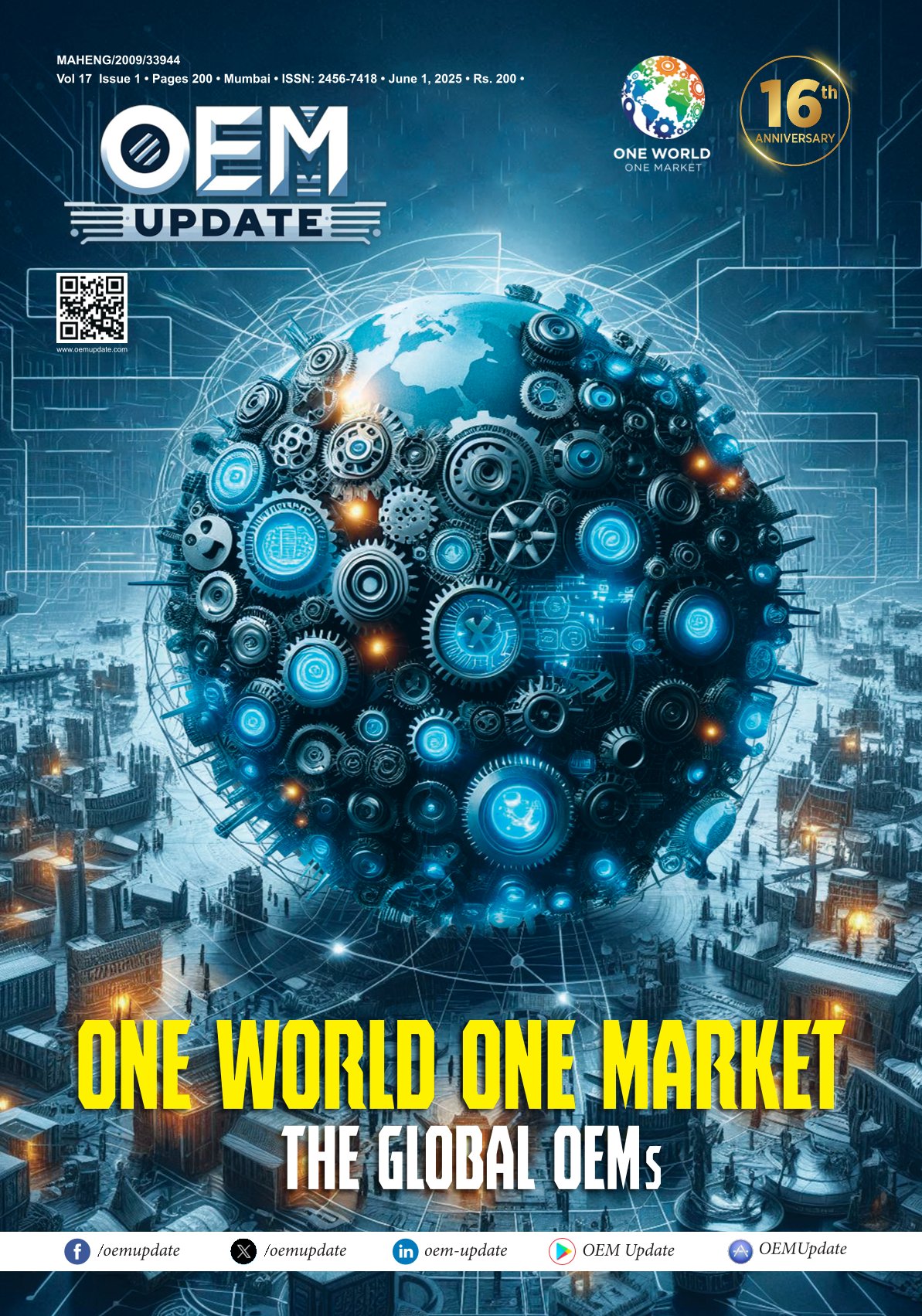Collaborative Robots Making Waves
By OEM Update Editorial June 29, 2017 5:09 pm IST
Universal’s strategy continues to rest on the enabling power of collaborative robotics which, offer the lowest return on investment, with no need for extra software or safety glass; the robot is used with ultimate simplicity, as a tool.
India’s readiness for Industry 4.0
Industry 4.0 is the current trend of automation and data exchange in manufacturing technologies. It includes cyber-physical systems, the Internet of Things (IoT) and cloud computing. It is no doubt the future of manufacturing. Its enhanced technology, digital systems and automated processes makes it optimum for manufacturing of quality products. The integration and interplay of product lifecycle management (PLM), factory automation and digitalisation is the key to the progress which forms the basis of Industrial 4.0, or the future of manufacturing.
Pradeep David, Country Head, India & Sri Lanka, Universal Robots shares his opinion on how important is Digitisation in the manufacturing process.
Digitisation is resulting in new ways of creating value and novel business models. It transforms the design, manufacture, operation and service of products and production systems. Connectivity and interaction among parts, machines, and humans makes production systems as much as 30 per cent faster and 25 per cent more efficient and elevate customisation to new levels. In a human-machine study conducted by MIT researchers at a BMW factory, it was shown that teams made of humans and robots collaborating efficiently can be around 85 per cent more productive than teams made of either human. Digitalisation majorly impacts and redefines the ‘productivity’ criteria and measure owing to digital real-time supply chain, digital product definition and digitally crafted and run production lines. The digitisation push by the government could act as a catalyst towards the growth of Internet of Things (IoT), say experts. IoT is critical for the services and manufacturing sectors which face challenges in terms of maintaining customer relationship, increased competition and commoditisation.
India racing ahead global peers
According to the data collated by PwC, 39 per cent of the Indian industrial companies plan to invest more than 8 per cent of their annual revenues in digital programmes in the next five years, while two-third of the companies investing in Industry 4.0 expect return on investment (RoI) from their digital investments within two years. This is more than the global figure, where 55 per cent of the companies are expecting the RoI from digital transformation in the first two years.
While Industry 4.0 is still a work in progress, many leading companies are working their way through new methods of automation in order to be prepared for digitisation and to define the future of manufacturing. Manufacturers are upgrading their competitiveness by bolstering their operations to improve the productivity of labour and capital, while launching targeted programs to train plant operators, managers, maintenance engineers, and other professionals to reach their manufacturing potential. Bridging the gap to reinforce the economy, the manufacturing industry is shifting its focus to smart or low-cost automation, extended utilisation of robotics, collaborative robots, implementation of time standardisation modules like MTM and REFA to optimise ergonomics (efficiency in the working environment), manual processes and production lines, and digitisation of manufacturing.
India has been gearing up for Industry 4.0, surpassing another industrial revolution, and lunging unwaveringly into the IoT. Humans and humans, humans and machines, and machines and machines – interaction between these variables has been possible for the last decade through connectivity. As a result, India has now become the hotspot of most industrial activities made possible by our IT stronghold. As per the PwC report, Indian industrial sector is warming up to the idea of digitisation. Catching up with its global peers, 65 per cent of manufacturing companies in the country will have high level of digitisation in five years’ time as opposed to 27 per cent at present.
All set for ‘smart factory’Universal Robots are the pioneers in the manufacturing of advanced, user-friendly and light industrial, Collaborative Robotic Arms (cobots). These collaborative robots safely work alongside humans, without any danger of getting hurt, and more as a “worker’s assistant” or “third arm” or “helping hand” or “portable tool”. The idea is for humans and robots to be inter-dependent and achieve what each of them do best, safely. There are a few things requiring human ingenuity that are best done manually, whereas the accuracy, precision and repetitive mass production at higher efficiency is best taken care of by robots. These cobots provide an added incentive to the workforce as consistent quality production is possible with human supervision. The new reality is operators with no programming experience can quickly program the cobot arms (with the help of patented, intuitive, 3D visualisation). All we have to do is move the robot arm to the desired waypoints or touch the arrow keys on the easy-to-use touch screen tablets.
The cobot arms come with an average payback time of 195 days. That’s the fastest in the industry – quite simply because they are void of all the added costs traditionally associated with automation such as external programming resources and shielded work cells. Human-robot collaboration is becoming integral part of Industry 4.0 (the 4th industrial revolution), as per leading manufacturers like Volkswagen, and these cobots actively participate in the Industrial Internet of Things or Smart Factories.
Three different collaborative robots of Universal Robots are easily integrated into existing production environments. With six articulation points and a wide scope of flexibility, the cobot arms are designed to mimic the range of motion of a human arm. The nominal investment cost is quickly recovered as Universal Robots’s robotic arms have an average payback period of just six months. Collaborative robots come in all sizes and shapes and have integrated sensors and soft and rounded surfaces for safety purposes and to reduce the risk of impact, pinching and crushing. Cobots are “force limited” robots – there is technology built in that allows them to work safely alongside humans. 80 per cent of the thousands of UR robots worldwide operate with no safety guarding (after risk assessment), right beside human operators. The safety system of Universal robots is approved and certified by TÜV (The German Technical Inspection Association). Universal cobots have over 65 patents pertaining to robot safety, robot construction, trajectory control, and robot calibration and programming.
Enabling power of collaborative robotics
Lightweight, cost effective and flexible collaborative robots from Universal Robots make it easier to quickly and simply push through the development of products and deliver that flexibility. Universal’s strategy continues to rest on the enabling power of collaborative robotics which, offer the lowest return on investment, with no need for extra software or safety glass; the robot is used with ultimate simplicity, as a tool.
Universal Robots is much ahead of the curve when it comes to digitisation and IoT. Their cobots can store and analyse its own usage data, and then is able to communicate that data smartly to other connected devices. Programming the UR cobots is very easy, simply by grabbing it, moving it around, and tapping on a touchscreen. By the use of simple programming, cobots can automate tasks such as machine tending, packaging, gluing, painting, polishing, and assembling parts etc.
The robots can also be programmed to operate in reduced mode when a human enters the robot’s work area and resume full speed when the person leaves. With respect to the hand guiding operation, the human operator uses a hand-operated device and the robot system moves based on motion commands of the operator.
It is a kind of manually controlled operation in that the operator is in direct control of the robot system’s operation. This is considered automatic operation, not manual operation.
UR cobots have immensely benefited the customers in terms of speed to market, responsiveness, consistency in quality and cost effectiveness. Their oldest customer Bajaj Auto Ltd have deployed over 100 cobots since 2010 and they saw a gradual rise in the productivity and efficiency in their production after deploying Universal Robots collaborative robots.
Cookie Consent
We use cookies to personalize your experience. By continuing to visit this website you agree to our Terms & Conditions, Privacy Policy and Cookie Policy.


















